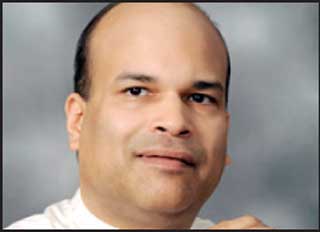Tuesday Feb 17, 2026
Tuesday Feb 17, 2026
Wednesday, 15 May 2024 00:30 - - {{hitsCtrl.values.hits}}
 |
| Milinda Moragoda
|
Pathfinder Foun-dation Founder and diplomat Milinda Moragoda yesterday released a six-point statement concerning the present economic situation.
“The bitter truth that half-hearted economic reforms by successive governments have been a major contributory factor to the current economic crisis,” Milinda Moragoda said in a statement.
He stated that It is critical that all political parties and society at large come to terms with the fact that economic reform and privatisation are integral components of any successful development program.
Following are the six points shared by Moragoda.
1) We must face the bitter truth that half-hearted economic reforms by successive governments have been a major contributory factor to the current economic crisis. The only solution to Sri Lanka’s present economic predicament is rapid economic growth. This can only be achieved through an outward-looking export and foreign-investment driven economic strategy. Such strategies have driven rapid growth and poverty alleviation in a number of other countries.
2) In Sri Lanka, such an economic transformation can only take place if the political formation governing the country is unequivocally committed to deep economic reforms that are predicated on clear policies based on competitiveness, global connectivity, privatisation, and small government.
3) If Sri Lanka is to come out of this economic collapse, the country will require annual growth rates of well over 5% for the next 10 years.
4) According to present forecasts, the economy is not expected to grow at more than 3% annually until 2032. Furthermore, the GDP-to-debt ratio in 2032 is expected to be at 95%, which will still leave our economy in an extremely fragile and precarious position.
4) In such a scenario, even after restructuring, Sri Lanka’s ability to service her debt could come into question, resulting in repeated restructuring and the austerity that goes with it.
5) It is critical that all political parties and society at large come to terms with the fact that economic reform and privatisation are integral components of any successful development programme. In that regard, it is incumbent upon all political parties to incorporate these aspects into their election manifestos at the very outset. This will serve to address the repeated policy reversals that have resulted in a lack of stability and predictability in the policy framework.
6) All parties should cost the proposals they put forward and explain how they intend to finance them. The era in which political parties make populist promises during election campaigns, then mislead the citizens after taking office, must be brought to an end.